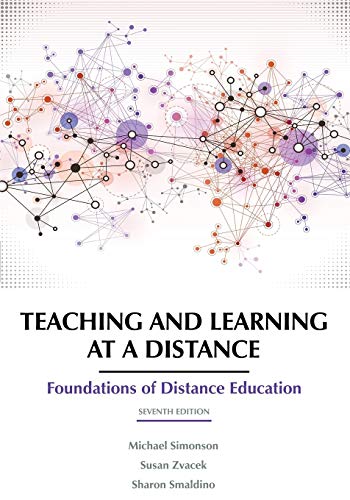

Most ebook files are in PDF format, so you can easily read them using various software such as Foxit Reader or directly on the Google Chrome browser.
Some ebook files are released by publishers in other formats such as .awz, .mobi, .epub, .fb2, etc. You may need to install specific software to read these formats on mobile/PC, such as Calibre.
Please read the tutorial at this link: https://ebookbell.com/faq
We offer FREE conversion to the popular formats you request; however, this may take some time. Therefore, right after payment, please email us, and we will try to provide the service as quickly as possible.
For some exceptional file formats or broken links (if any), please refrain from opening any disputes. Instead, email us first, and we will try to assist within a maximum of 6 hours.
EbookBell Team

4.1
60 reviewsThe teacher or trainer who uses this book will be able to distinguish between appropriate uses of distance education. In this text we take the following themes:
The first theme is the definition of distance education. Before we started writing the first edition of Teaching and Learning at a Distance we carefully reviewed the literature to determine the definition that would be at the foundation of our writing. This definition is based on the work of Desmond Keegan, but is unique to this book. This definition of distance education has been adopted by the Association for Educational Communications and Technology and by the Encyclopedia Britannica.
The second theme of the book was the importance of research to the development of the contents of the book. The best practices presented in Teaching and Learning at a Distance are validated by scientific evidence. Certainly there are “rules of thumb”, but we have always attempted to only include recommendations that can be supported by research.
The third theme of Teaching and Learning at a Distance is derived from Richard Clark’s famous quote published in the Review of Educational Research that states that media are mere vehicles that do not directly influence achievement. Clark’s controversial work is discussed in the book, but is also fundamental to the book’s advocacy for distance education – in other words, we authors did not make the claim that education delivered at a distance was inherently better than other ways people learn. Distance delivered instruction is not a “magical” approach that makes learners achieve more.